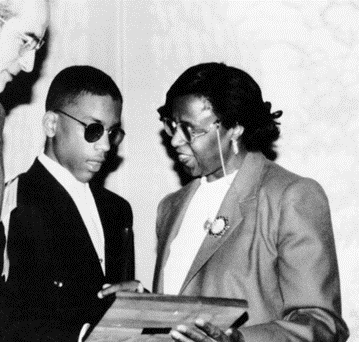Celebrating Women’s History Month
This is a special post written by Charles Warren, Curriculum Developer at Triangle. Charlie is also a member of Triangle’s Racial Equity Committee. As part of our commitment to the work of our Racial Equity Committee, we will be sharing more information with you on subjects related to racial equity and disability justice. This post continues our series dedicated to calling attention to the contributions of people with disabilities to American history.
Triangle’s Racial Equity Committee (REC) is celebrating Women’s History Month by highlighting women who are focused on increasing awareness and empowerment for people with disabilities. The REC’s posts strive to honor intersectionality and highlight people of color with disabilities whose lives cross over multiple identities and issues ALL at the same time.
Dr. Sylvia Walker

Dr. Sylvia Walker (1937 – 2004) was a disability rights activist and professor who left an indelible mark on education and disability studies. Dr. Walker grew up in Far Rockaway, Queens, New York. She was born with a visual impairment and was legally blind by the age of 14. She was unable to access her first pair of glasses until fifth grade. This delayed access impacted her early education and high school experience.
In her career, Dr. Walker held four degrees and became a full-time professor at Howard University in Washington, D.C. She established the Howard University Center for Disability and Socioeconomic Policy Studies and oversaw the Howard University Research and Training Center (HURTC), which focused on meeting the employment preparation needs of African American students with disabilities from low-income backgrounds. In addition to these roles, she served as the chairman of the Department of Psychoeducational Studies. In 1995, she co-founded the American Association of People with Disabilities.
Dr. Walker’s legacy extends beyond academia. As a blind advocate, she championed the rights of minority people with disabilities throughout her life. Her work contributed significantly to disability rights and inclusion. Notably, she served as a vice-chair of the President’s Committee on Employment of People with Disabilities during the Clinton Administration. Dr. Walker’s commitment to equality and empowerment was the foundation for a lifetime of accomplishments whose legacy continues to resonate today.